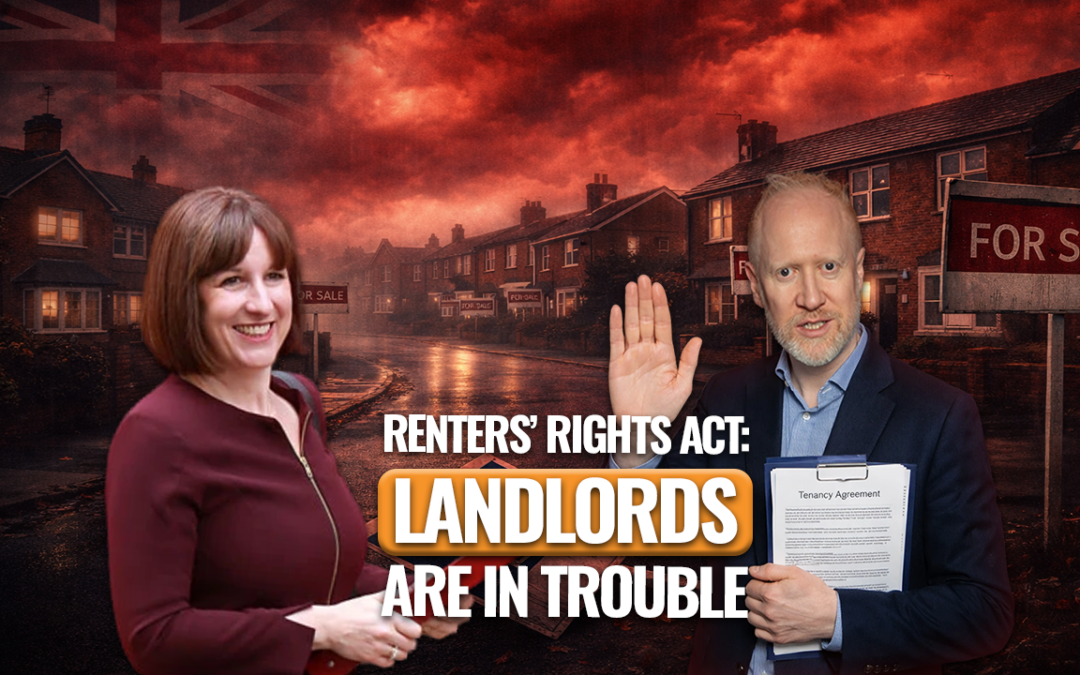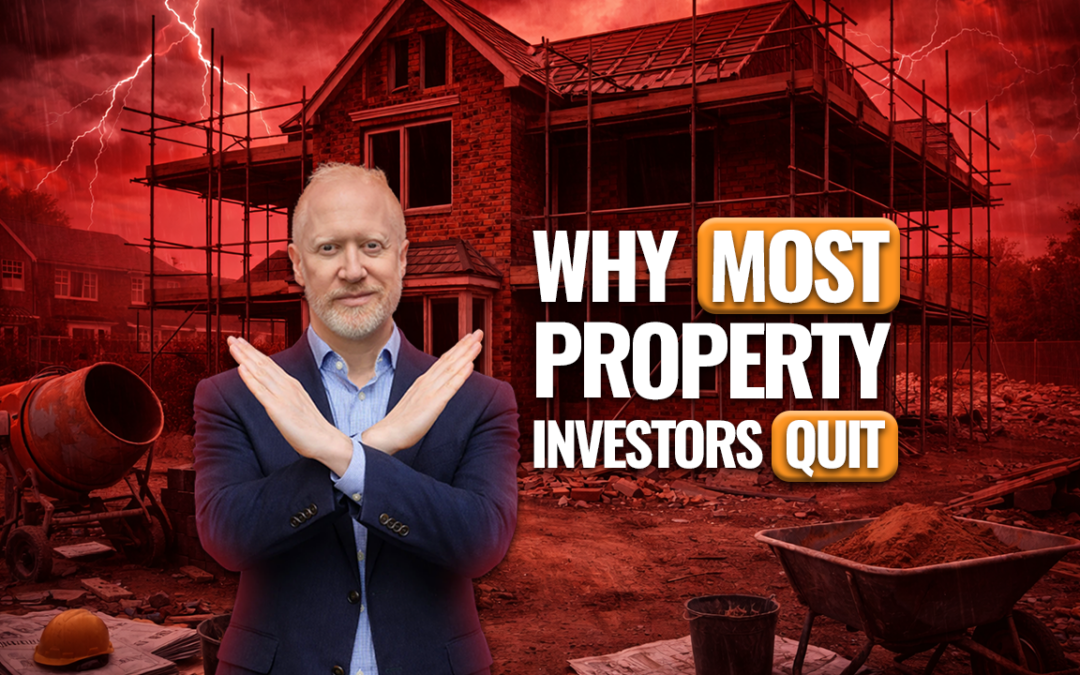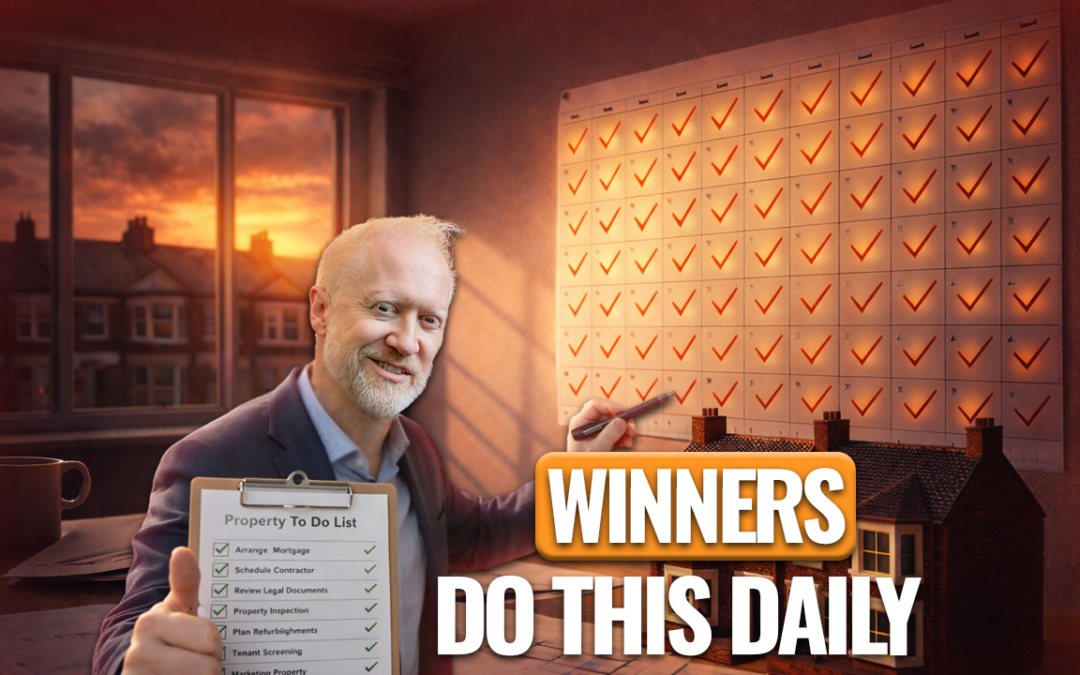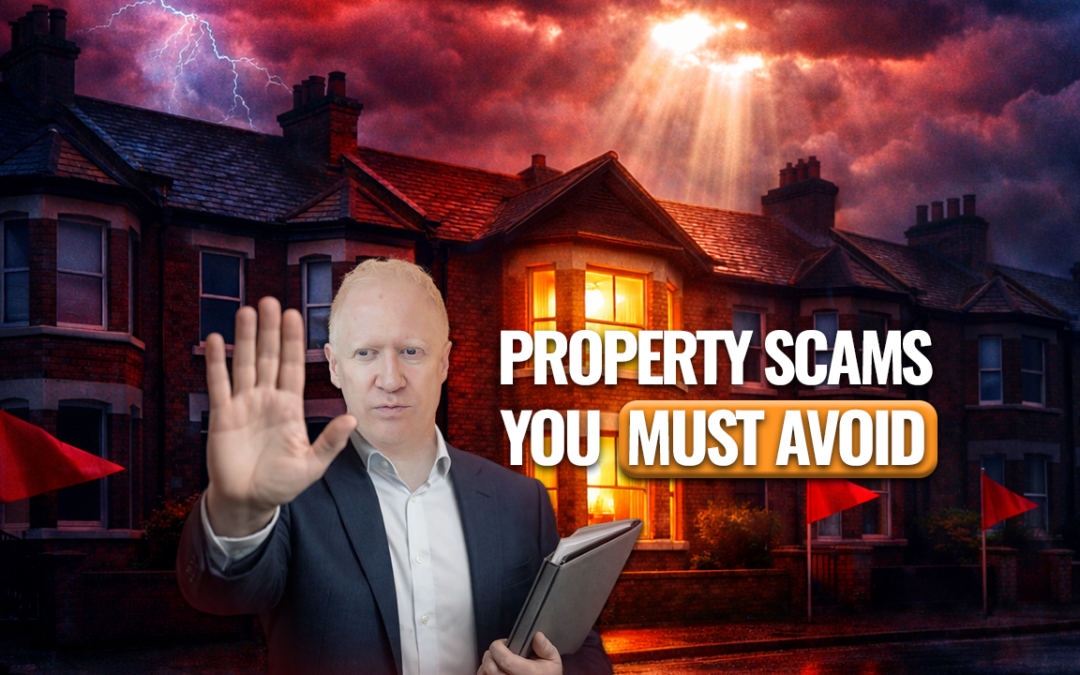One of the biggest frustrations I hear from investors is when a property gets down valued. However, you can actually influence that outcome more than you might think. You’ve done the refurb, you’ve added value, and yet the surveyor’s report doesn’t reflect the true worth of your investment. The good news is that you can influence that outcome more than you might think. In fact, learning how to prepare for a surveyor visit is one of the smartest skills any investor can develop. In this week’s Property Magic Podcast episode, I share how to influence property surveyors, how to get a higher property valuation, and my best UK property valuation tips to help you understand what surveyors look for when carrying out a property surveyor valuation in the UK.
Because remember, it’s not just about what your property is worth, it’s about what you can prove it’s worth and that starts with how you present it to the surveyor.
If you’re part of the property investors network community, you’ll already know how crucial valuations are to maximising your return.
Why Learning to Influence Property Surveyors Matters
Most investors put huge effort into finding the right deal, arranging finance, and managing refurbishments and then leave the valuation completely to chance. As a result, they miss one of the easiest opportunities to protect their profits.
The valuation is the final piece that brings everything together. If it comes back low, it can wipe out your profit, ruin your refinance numbers, and stall your progress.
Understanding how to influence property surveyors doesn’t mean being pushy or manipulative. Instead, it’s about helping the surveyor see what you see, presenting the right information, in the right way, so they feel confident agreeing with your valuation.
This is exactly the type of detail we explore inside our property coaching and mentoring programmes helping you gain the skills and confidence to apply this knowledge to your own portfolio.
Understanding the Property Surveyor Valuation Process in the UK
To influence a valuation effectively, you first need to understand how it works.
Surveyors follow RICS (Royal Institution of Chartered Surveyors) standards. Therefore, their valuation is always evidence-based, not opinion-driven. They’ll also look at comparable sales, local demand, and rental potential. In addition, they may consider factors like condition, layout, and access.
If you’d like a deeper understanding of how to apply this in practice, take a look at our Property Mastermind Accelerator, a 3-day workshop focused entirely on building your property investing confidence and results.
When completing a property surveyor valuation UK report, they’ll look at things like:
-
The property’s location and layout
-
The quality and scope of refurbishment works
-
Evidence of comparable sales nearby
-
Rental income potential (for investment properties)
-
Any risks or maintenance concerns
In short, surveyors rely on facts. Therefore, the more organised you are, the easier their job becomes.
What Surveyors Look for During a Property Valuation
If you really want to know what surveyors look for property valuation, this section is crucial.
Here’s what I’ve found matters most when a surveyor walks through the door:
- Condition and presentation – The property should look finished, tidy, and well cared for. First impressions count, even for professionals. That’s why you should make sure the property looks finished and well presented.
- Evidence of works – Provide your full schedule of works, costs, and before-and-after photos. This way, the surveyor can easily see how much value you’ve added.
- Comparable sales data – Three or more good comparables from Rightmove or Land Registry carry real weight.
- Rental income evidence – If it’s an investment property, show tenancy agreements or recent rent statements.
- Professionalism – Surveyors notice how organised you are. A clear, factual approach earns respect and trust.
When you understand what surveyors look for, you can prepare properly and present your property in a way that supports your desired valuation.
How to Get a Higher Property Valuation
If you’ve ever wondered how to get a higher property valuation, it all comes down to preparation. Let me walk you through the same approach I teach my 12-month Property Mastermind students.
1. Prepare Your Valuation Pack
Before the surveyor even arrives, prepare a simple, professional document. Then, hand it over politely at the start of the visit.
- Your purchase price and refurb summary
- A detailed schedule of works and costs
- Before-and-after photos
- Comparable sold prices
- Rental data or yield calculations
This helps the surveyor see the logic behind your valuation and saves them time researching.
2. Time the Valuation Correctly
If possible, arrange the survey once the refurb is complete. Otherwise, unfinished work can give the impression the project is incomplete.
3. Present Professionally
A clean, well-presented property communicates confidence. Similarly, being available to answer questions shows professionalism. If tenants are in situ, make sure they understand what’s happening and that the property is tidy for the visit.
4. Be Available, But Don’t Interfere
If you can be there in person, great. Hand over your valuation pack, answer questions honestly, and let them do their work. They’ll appreciate your professionalism.
5. Follow Up with Data
If the valuation still comes back low, request a copy of the report. Compare their chosen comparables with yours. If the evidence doesn’t align, you can submit an appeal but only if your case is genuinely stronger.
My Top UK Property Valuation Tips
Now let’s look at some broader UK property valuation tips that apply whether you’re refinancing, selling, or just tracking your portfolio value.
-
Know the ceiling price for the area. Otherwise, you risk overinvesting on features that don’t increase value.
-
Only invest in works that add measurable value. Not every upgrade increases valuation.
-
Keep every invoice, certificate, and warranty. Documentation proves quality.
-
Stay objective. You might love your refurb, but the market sets the value.
-
Think long term. Over time, consistent presentation and documentation build credibility with surveyors and lenders.
Remember, property valuation isn’t an art, it’s a science based on data, evidence, and perception.
If you’d like help applying these valuation tips in your own area, come along to your local pin meeting and connect with other investors doing the same thing.
How to Work with Property Surveyors Effectively
Over the years, I’ve learned that how you work with property surveyors makes a massive difference. The best relationships are built on respect and collaboration, not confrontation.
Here’s what I recommend:
-
Be organised. Show up with everything they might need, neatly presented.
-
Stay factual. Stick to evidence, not emotion.
-
Be polite and professional. You’re both doing your job, help them do theirs.
-
Follow up positively. A short thank-you email goes a long way.
When you treat surveyors as partners rather than obstacles, you’re far more likely to get the valuation you deserve.
Avoiding Common Down Valuation Mistakes
Many investors get caught out by avoidable errors. These are the main causes of down valuations I’ve seen:
-
Expecting an unrealistic post-refurb value
-
Weak or outdated comparable data
-
Presenting an unfinished property
-
Overvaluing cosmetic changes
-
Poor communication or lack of evidence
The best way to avoid these mistakes is to do your homework early. Know your end value before you start the refurb. As I often say, “Work backwards from your target valuation, not forwards from your refurb budget.”
The Power of Ethical Influence
Now, I want to be clear: influencing a surveyor doesn’t mean trying to manipulate them. It’s about ethical influence, helping them see the real value you’ve created, backed up by facts.
When you provide clarity, confidence, and evidence, you make it easier for the surveyor to agree with your assessment. They’re simply confirming what your data already proves.
Final Thoughts: Take Control of Your Valuation Outcome
Here’s what I want you to take away from this: the survey doesn’t determine your property’s value, you do, through the way you prepare, present, and support your case.
Learn how to influence property surveyors, understand what surveyors look for, and apply these UK property valuation tips to every deal you do. You’ll be amazed at how much more confident you feel about your numbers and how much smoother your refinancing process becomes.
And if you want to learn more about practical, proven strategies like this, come and join us at a property investors network (pin) meeting. You’ll meet like-minded investors, share ideas, and gain the clarity you need to move forward with confidence. If it’s your first time attending, use the voucher code BLOG when booking your ticket to get free entry.
Frequently Asked Questions
1. How can I influence property surveyors without crossing the line?
The right way to influence a surveyor is by presenting solid evidence, not pressure. Be professional, organised, and transparent. Show them clear comparables, before-and-after photos, and your schedule of works. When you make their job easier, they’re far more likely to see the genuine value you’ve added.
2. What do surveyors look for during a property valuation?
Surveyors look for proof that your valuation is realistic. They assess the property’s condition, finish, layout, and location, alongside comparable sales and rental income. They want facts, not emotion, so give them accurate data and clear documentation that supports your figure.
3. How can I get a higher property valuation after refurbishment?
It comes down to presentation and preparation. Complete every visible job, make sure the property looks cared for, and have your valuation pack ready. Include comparables, invoices, and evidence of improvements. The clearer your case, the higher your chances of achieving the valuation you want.
4. Why do properties get down-valued by surveyors?
Down valuations happen when expectations don’t match the evidence. It could be weak comparables, unfinished works, or a market change. Always base your target value on real data, finish every detail, and keep communication factual and professional.
5. What’s the difference between a property valuation and a surveyor valuation in the UK?
A property valuation estimates market value, often for your own planning. A surveyor valuation is an independent, lender-required report carried out under RICS standards. It’s focused on evidence and risk, which is why preparation and documentation are essential.
About property investors network
Founded in 2003 by Simon Zutshi, property investors network (pin) is the UK’s longest-running and pioneering property training and networking organisation. We cater for all levels of investors from beginners learning how to start in property to experienced professionals looking to scale. With monthly property networking meetings across the UK, online workshops and hands-on coaching programmes, pin has supported thousands of people to build knowledge, confidence and profitable portfolios. Unlike estate agents or deal sellers, pin focuses purely on UK property training and education, providing a safe and inspiring community for anyone serious about property investing.











